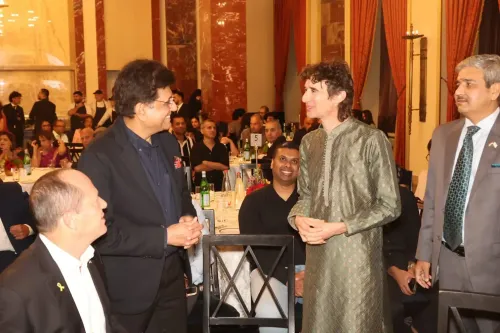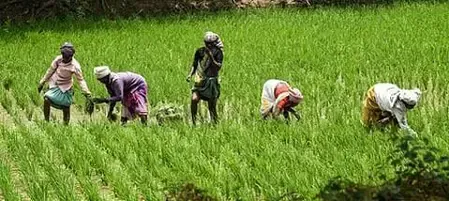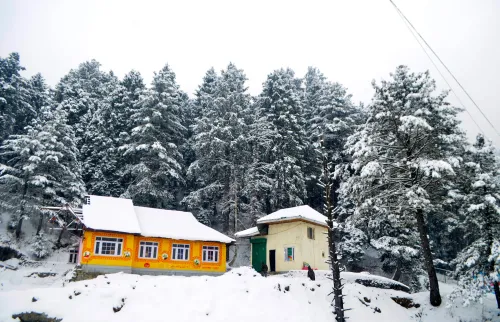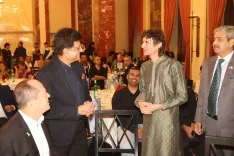India and Germany to Enhance Collaboration in AI and Quantum Technologies
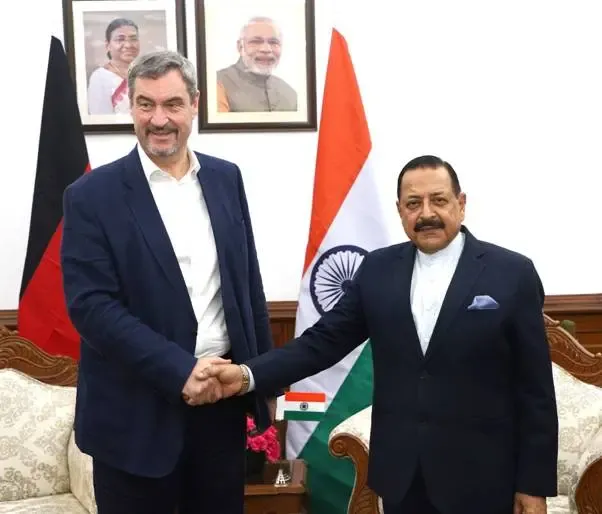
Synopsis
Key Takeaways
- India and Germany to boost cooperation in AI and quantum technologies.
- Focus on sustainable development and innovation-driven growth.
- Collaboration in clean energy, biotechnology, and electric mobility.
- India is expanding its biotech sector with over 3,000 startups.
- More than 50,000 Indian students study in German universities.
New Delhi, April 13 (NationPress) India and Germany have committed to intensifying their collaboration in cutting-edge technologies such as artificial intelligence (AI), quantum technologies, and green hydrogen, emphasizing innovation-driven growth and sustainable development, as stated by Union Minister of State (Independent Charge) for Science and Technology Jitendra Singh on Sunday.
Dr. Singh underscored the strong and enduring partnership between India and Germany in the domains of science, technology, and innovation (STI).
He remarked, "The two nations can work together more effectively in vital sectors like clean energy, biotechnology, cyber-physical systems, electric mobility, and green hydrogen," following his meeting with Bavaria's visiting Minister-President Markus Soder in the national capital.
Dr. Singh noted that India is advancing with mission-mode initiatives under Prime Minister Narendra Modi's guidance, aimed at discovering economic and sustainable solutions through science and technology. He referred to Germany as a natural and dependable partner in this endeavor.
"India has embarked on mission-mode programs guided by the visionary leadership of Prime Minister Modi. Our aim is to find economic and sustainable solutions through scientific and technological interventions, with Germany as a trusted ally in this journey," he stated.
Commending the Indo-German 2+2 collaboration model, which links universities and industries from both countries, he described it as a forward-looking approach that fosters the development of innovation ecosystems.
"This model is enabling both nations to tackle global challenges and transform ideas into real-world solutions," the Union Minister added.
Discussions also included India's burgeoning strength in the biotechnology sector. Dr. Singh highlighted that India boasts over 3,000 biotech startups and is recognized as the world's largest vaccine producer.
He mentioned the recent BIOe3 policy, designed to amplify innovation and create jobs by concentrating on energy, economy, and employment through biotechnology.
Furthermore, Dr. Singh pointed out that India ranks as the third-largest nation for startups and unicorns, presenting exceptional opportunities for global technology partnerships.
Furthermore, emphasizing India's academic ties with Germany, Dr. Singh noted that over 50,000 Indian students are currently enrolled in German universities, primarily in science, technology, engineering, and mathematics (STEM) disciplines.
This figure has tripled over the past seven years. He expressed optimism that more German students would also visit India to delve into its knowledge systems, including Oriental Studies and Indian culture.

